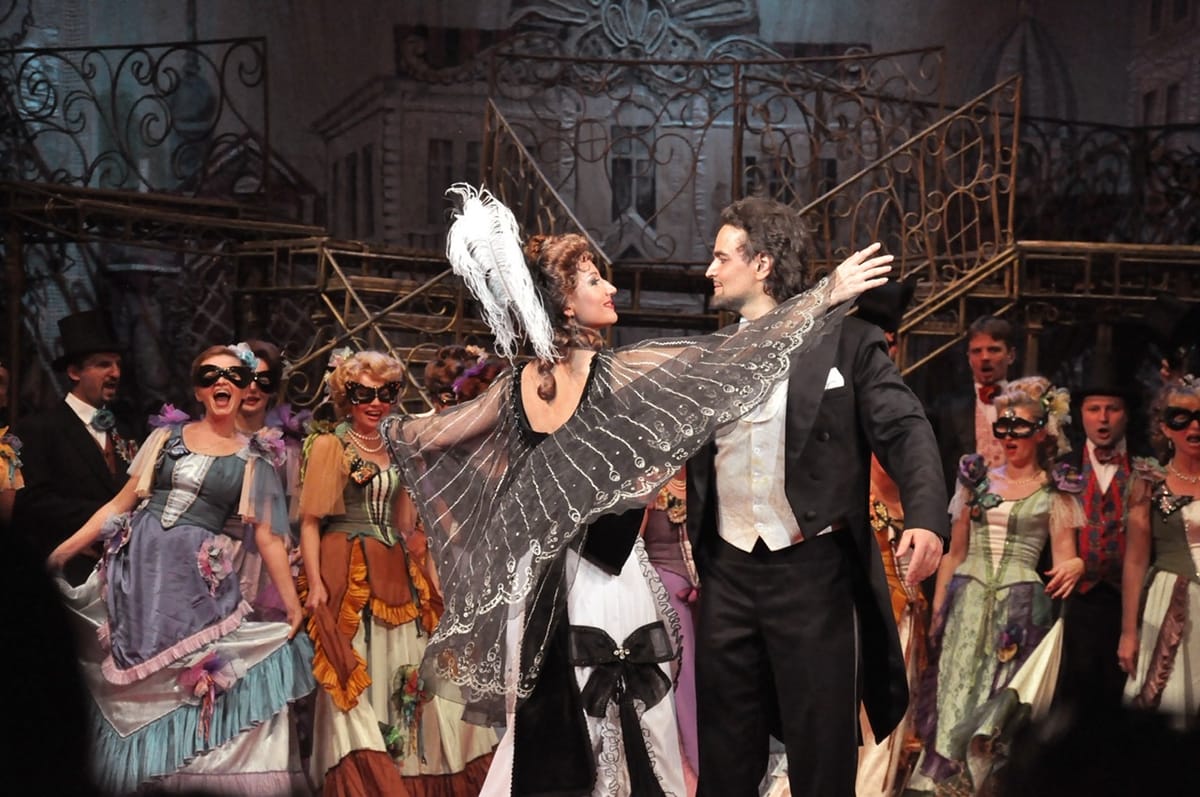From Hungary, With Love

Szilveszter Ókovács, General Director, Hungarian State Opera, writes about the collaboration between Hungary’s national opera company and the Symphony Orchestra of India for the SOI Autumn 2022 Season.
“We are delighted that many years of efforts have finally borne fruit and we are pleased to reproduce the direct communication received from Mr. Szilveszter Ókovács, a person with a deep musical knowledge and leadership ability.” – Mr. Khushroo N. Suntook, Chairman, NCPA
India is a world power of the future, but by the time this sentence ends, it might be one in the present. It is a great honour for the Hungarian State Opera to be invited to one of the most populous and rapidly developing countries by the leading cultural institute of such a great city, that has been eager to host our ensembles and productions for years even in the shadow of the pandemic. No wonder that our guest performances in Mumbai are being looked forward to with great expectations on our side as well: we are to present pieces close to our heart for the first time in your metropolis so rich in tradition and responsive to European culture, too.
The delay was inevitable for a number of reasons. Decades of tours in Japan and our guest performances in New York in 2018 made us aware of the challenges posed by the logistics, the careful planning required from both the guests and the hosts concerning the transport of the costumes and sets by sea that can take months. Not to mention the several hundred people involved—soloists, chorus, orchestra, dancers, extras and technical crew—and the weeks of preparation that involve them. Moreover, there was the heightened health risk of travelling that not only rendered our tours but our normal operation impossible. Nevertheless, the Hungarian State Opera was not completely inoperative during the lockdown. Aria recitals and opera highlights with piano accompaniment as well as chamber performances by our musicians, chorus members and ballet dancers were streamed free every week online. When the possibility arose, full-scale performances were broadcast from our different venues. However, the lack of a live audience and regular appearances on stage took its toll on all of us.
Die Fledermaus has constantly been part of the Hungarian State Opera repertoire for 125 years. Its plot determines it to be performed around New Year’s Eve in Hungary making it an audience favourite of the season. This masterpiece by Johann Strauss II, the Viennese waltz king, evokes a sense of nostalgia for 19th-century Austro-Hungary and its music features motifs of the Hungarian czardas. It was also inspired by other nations of the former Central European empire. The well-composed operetta might seem lightsome at first sight, but closely inspected, it turns out to be a clever, manysided piece. It emanates a zest for life on the one hand, while it exposes the falsity of the bourgeoisie and married life of the age on the other. Everyone cheats on everyone, they all pretend to be someone they are not, but the work also shows examples of defencelessness and humiliation. The music of Strauss puts an ironic touch to these all for the listeners not to be too downhearted by the moral of the story.
The performances in Mumbai also feature a true curiosity: the artistes of the Hungarian State Opera present our national opera, Bánk Bán – The Viceroy Bánk, in a concert version. The composer Ferenc Erkel was the first general music director of our opera house, he created Hungarian opera in the 19th century, and also composed Hymnus, our national anthem. Just as in the case of his other operas, he drew inspiration from Hungarian history to reflect on his own time. His piece, interwoven with patriotic emotions, is a symbol of the want of independence by the Hungarians living under the Habsburg rule.
The action takes place in the early 13th century. Bánk is a Hungarian nobleman, bound by his oath to his king who is on a crusade, to bear the immoral and infestant deeds of the German queen and her family, until his own wife falls prey to them. The music of the opera is reminiscent of Verdi and Meyerbeer and features the Hungarian “verbunk” style accompanied by such particular instruments as the cymbalo and the viola d’amore.
The Hungarian State Opera presents its productions in a very special set-up, in a cooperation featuring the Symphony Orchestra of India led by a Hungarian conductor and instrumental leaders. The Budapest OPERA Orchestra has had such collaborations previously, in Qatar, Jordan and South Korea, which proved very successful. This way it is not only the audience but the artistes too who get first-hand experience of the style and culture of another continent, which all helps a better understanding of the other and results in more inspired, more spirited productions.
It is for the first time that the members of the Hungarian State Opera are visiting India, a famed country. We are grateful for the invitation and the interest in the art and artistes of our thousand-year-old nation.
This piece was originally published by the National Centre for the Performing Arts, Mumbai, in the July 2022 issue of ON Stage – their monthly arts magazine.





